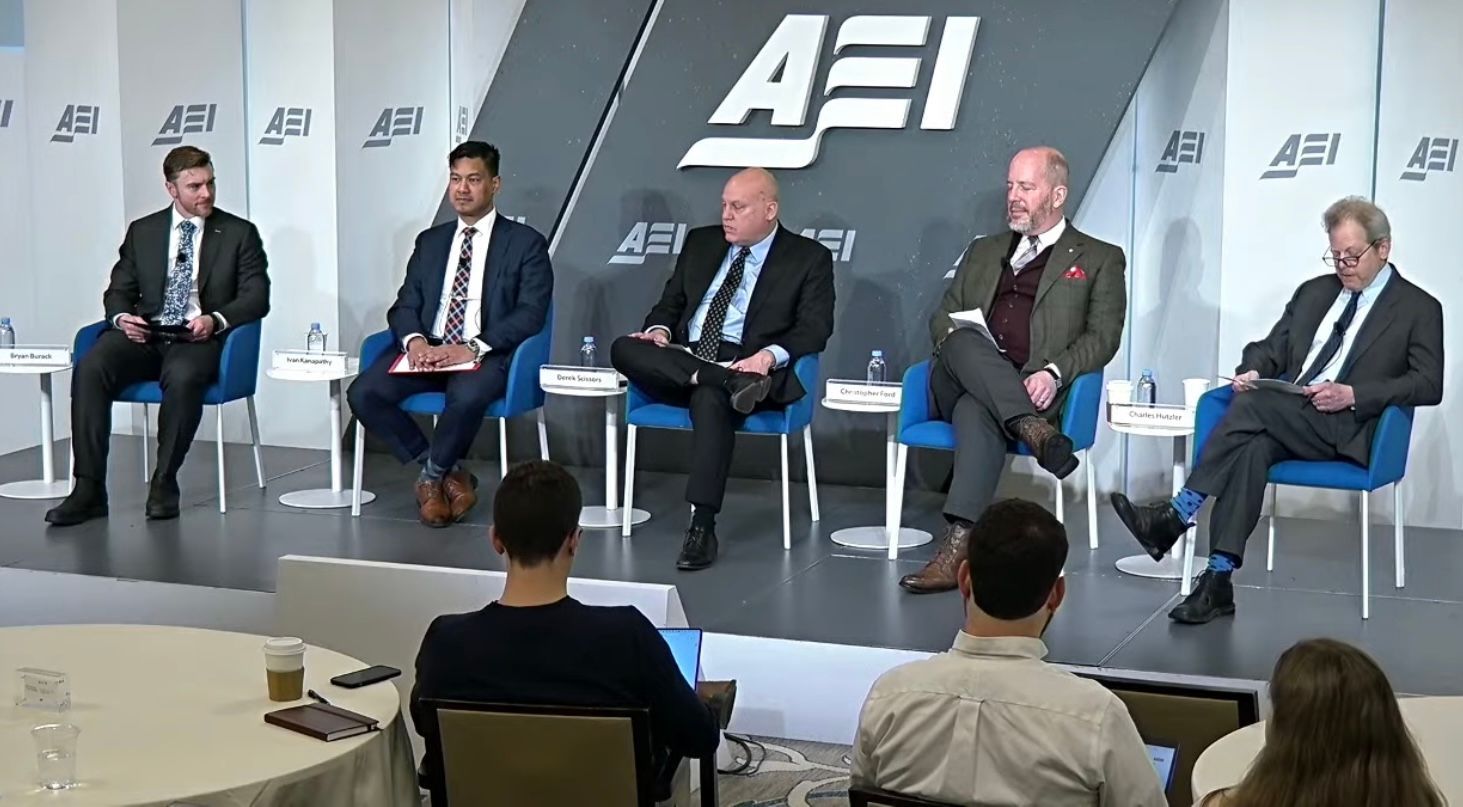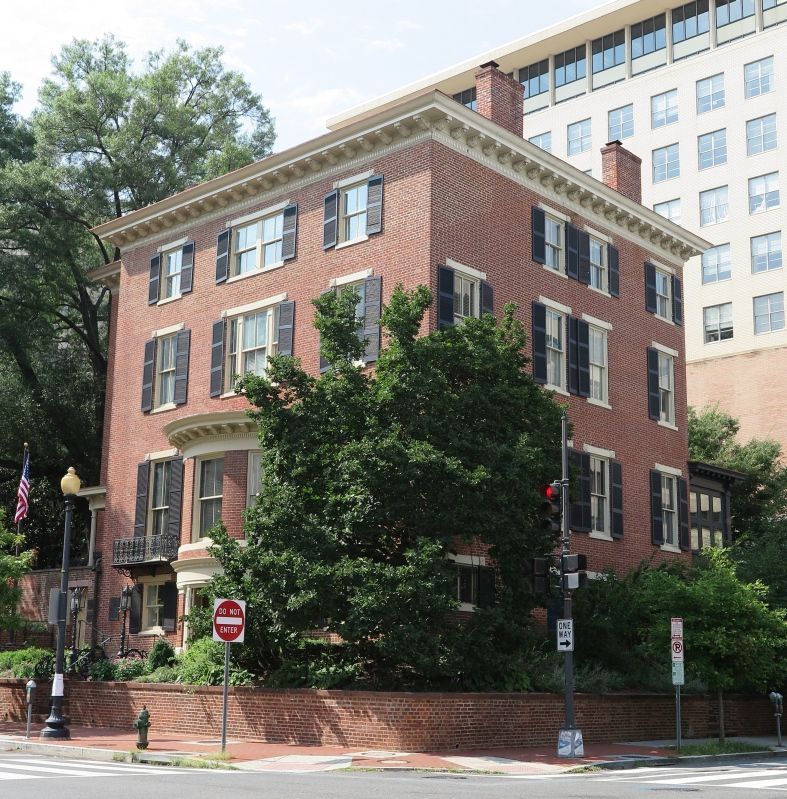The Hon. Christopher A. Ford
New Paradigms Forum -- International Security Policy Since 2009
Assessing the Final U.N. Security Council Resolution on Nonproliferation and Disarmament
The Obama Administration is telling everyone that it scored a big victory yesterday in the U.N. Security Council by obtaining passage of a resolution on nonproliferation and disarmament based upon the U.S. draft text circulated last weekend. In one sense, this was indeed a diplomatic victory. It has probably been some time since a U.S. draft resolution on these issues sailed through the lowest-common-denominator U.N. negotiating process with so few changes. This, we are told, demonstrates the President’s leadership and vision. The other way of looking at this, of course, is that it illustrates the degree to which the Obama Administration’s grand vision for nonproliferation, disarmament, and arms control simply follows the conventional wisdom prevailing in such lowest-common-denominator fora. Negotiating resolutions is easy, after all, when your policy consists of giving one’s negotiating partners what they want.
But I don’t want to be unfair. The real question, isn’t about how derivative the White House’s vision happens to be, but instead whether the substance of the Resolution is sound and valuable. (If the substance is good, who cares how reflexively it was arrived at?) An even more important question is whether and how this Resolution will contribute to positive changes in the real world.
The answer to that second question is, of course, presently unknowable. If the Resolution does not produce much, it would certainly not be the first time grand pronouncements by multinational bodies have proven to be hollow rhetorical shells when governments finally get around to making tough real-world decisions. As I can testify from personal experience, diplomats face strong incentives to declare victory when they have elicited statements of agreement on important topics, and incentives not to worry overmuch about what happens after that. Policymakers and national leaders should be held to a higher standard, however, for what we really ought to care about is results : how such sentiments are lived out in the world, rather than just the fact that they are articulated. If diplomatic pronouncements reflect and/or catalyze progress on important issues, that is success; if they mask divergences and represent merely the pretense of progress, that most assuredly is not.
Especially as we approach the 2010 Review Conference of the Nuclear Nonproliferation Treaty (NPT) , there will be powerful incentives for our diplomats to find glory in mere process. The current administration is eager to distinguish itself from its predecessor by having a “successful” conference, and in the diplomatic context of the NPT Review Process, success is defined only by agreement upon a Final Document. To judge by the progress of yesterday’s Security Council Resolution, it shouldn’t be too hard for the Obama Administration to “succeed” by this standard. Serious observers, however, should keep their eye on the ball: the real question is whether this iteration of the NPT Review Cycle sees the world make progress in addressing the grave proliferation challenges that threaten the nonproliferation regime. By that metric, success will take a lot more than having a consensus document come rolling off the printing presses in New York.
That said, it’s too early to judge the Obama Administration’s success in rallying a robust response to today’s proliferation challenges. (Perhaps one will yet materialize – though I do not brim with optimism.) It is not too early, however, to judge this week’s Security Council resolution, and from it to assess the Americans’ likely approach to both the substance and the atmospherics of these issues. In this regard, I don’t have much to add to my earlier posting about the merits and demerits of the U.S. draft text circulated last weekend. For good or for ill, the final Resolution tracks the draft closely enough that it would be pedantic and boring for me to repeat my analysis here. It remains as good a window into Obama Administration thinking as we have yet seen.
You may be interested, however, in an account of how the Security Council negotiating progress did change the U.S. draft text circulated a week ago. Few of the tweaks are vastly important, but some are interesting, and perhaps suggestive. The following paragraphs describe the ones that jumped out at me.
I. WMD Proliferation as a Threat to Peace and Security?
In its opening paragraphs, the final text of the U.N. Security Council Resolution (UNSCR) adds a new declaration that “proliferation of weapons of mass destruction, and their means of delivery, constitutes a threat to international peace and security.” This is hardly wrong, of course, and its inclusion is commendable. Interestingly, however, the U.S. draft text contained no such comment. Such phrasing appears in the landmark Presidential Statement made by the Security Council in 1992 (S/23500) , but for some reason the Obama Administration could not quite bring itself to say so in its own draft.
Indeed, even though the U.S. draft mentioned S/23500, it only “recalled” the 1992 document. The final UNSCR thus did the Obama Administration not one but two better in describing proliferation as a danger: in addition to “reaffirming” S/23500 rather than merely “recalling” it, the final text explicitly describes WMD proliferation as a threat to international peace and security. Since such threat phrasing is the factual predicate required for legally-binding U.N. Security Council action under Chapter VII, we should be grateful that someone saw fit to insist upon these amendments in toughening the somewhat limp U.S. draft. One wonders, however, why the Americans had to be coaxed into saying this. When was the last time that it took a U.N. negotiating process to make a U.S. draft text stronger on nonproliferation?
Elsewhere in the final draft, in fact, the Obama Administration seems to have agreed to a weakening of even what little its own draft had said about threats to international peace and security. Clearly referring to Iran’s violation of its nonproliferation obligations and defiance of multiple legally-binding Security Council resolutions, the U.S. draft had “deplore[d] the current major challenges to the nonproliferation regime that the Security Council has determined to be threats to international peace and security.” This, however, was apparently too much for the market to bear in this week’s Security Council deliberations: the draft language was watered down into no more than an “express[ion] [of] particular concern,” while the reference to threats to international peace and security was simply dropped. (The final text of Operative Paragraph 10 just refers to threats “that the Security Council has acted upon” – a sad little piece of phraseology that presumably had the additional advantage of using the past tense, making it sound a bit like the Security Council’s involvement with the Iran issue is now behind us.)
II. State-Sponsored Nuclear Terrorism and Illicit Trafficking
The final UNSCR text also watered down a provision in the U.S. draft that in its original form had expressed grave concern about the threat of “the provision of nuclear material or technical assistance for the purposes of terrorism.” (In its final version, the UNSCR just “recogniz[es]” the need to prevent nuclear material or technical assistance from becoming available to terrorists.) The final resolution also entirely omitted a U.S.-drafted preambular paragraph that had noted “the risk that irresponsible or unlawful provision of nuclear material or technical assistance could enable terrorism.”
These two changes to the language on nuclear terrorism are disheartening. One might have thought that preventing state-sponsored terrorist access to WMD would be one of the few areas on which essentially everyone could agree. It appears, however, that someone on the Security Council felt it too much to speak out explicitly against providing terrorists with nuclear-related assistance. The final text still notes the importance of preventing “nuclear material or technical assistance becoming available to terrorists,” but the use of the passive voice is disturbing in light of these deletions. Why would it be objectionable to decry the possibility of state-sponsored nuclear terrorism? Especially at a time when Hezbollah’s international sponsor and paymaster is busily enriching uranium and has threatened to wipe Israel off the map, the change in the text is slightly creepy.
Where the original U.S. draft called upon “all states” to work to enhance international partnerships and capacity building with regard to combating trafficking in nuclear material, the final UNSCR’s Operative Paragraph 26 only calls upon “those States in a position to do so” to do this. In Operative Paragraph 27, the final text also completely omits an earlier U.S.-proposed reference to “illicit trafficking” of nuclear materials. Someone apparently thought it objectionable to call upon states to fight such illicit trafficking within their borders: in the final text, they are urged merely to “prevent proliferation financing and shipments, to strengthen export controls, to secure sensitive materials, and to control access to intangible transfers of technology.” These are hardly bad things to fight, but why was it important to delete language about also combating illicit trafficking? Is someone looking for wiggle room to disclaim any responsibility – as Pakistan did with the notorious nuclear smuggling operations of A.Q. Khan – for nuclear trafficking by “renegades” operating out of its territory?
III. The Disarmament Agenda
The final text of the UNSCR now “recalls” the outcomes of past NPT Review Conferences, including the 1995 and 2000 Final Documents. In this regard, it is interesting to see President Obama accept Bush-era phrasing downgrading the 2000 Final Document as something merely to be “recalled” rather than actually followed. Now that President Bush has retired to private life, the disarmament community seems willing to admit the obvious fact upon which his diplomats insisted for eight years in the face of angry opposition: that the package of nuclear disarmament “steps” endorsed in the 2000 Final Document is – as a package, at least – obsolete.
Another change came in Operative Paragraph 7 of the final document, which added to the U.S. draft’s discussion of the Comprehensive Test Ban Treaty (CTBT) a call for this instrument to enter into force “at an early date.” The reader may recall that in order for entry-into-force (EIF) to take place, accession is required not only by the United States but also by China, India, Israel, Egypt, Pakistan, Iran, and North Korea. We should perhaps be grateful that the tiny island state of St. Vincent and the Grenadines has now shown leadership in this field by ratifying CTBT on Wednesday, but supporters of the Treaty have good reason to be nervous about when exactly EIF is ever likely to occur.
In Operative Paragraph 8, the final text of the UNSCR also adds a new comment requesting all states to cooperate upon commencement of substantive work under the new program of action agreed at the U.N. Conference on Disarmament. This may reflect a growing realization that in the wake of the Obama Administration’s reversal of Bush Administration policy on the effective verifiability of a Fissile Material Cutoff Treaty (FMCT), the CD’s problems in actually negotiating a FMCT are just beginning. (Perhaps they have even worsened, as parties now find themselves armed with the endlessly disputatious possibilities inherent in establishing what intrusive verification provisions their rivals should be compelled to accept, or they themselves should not.) Several months after the Americans’ volte face , the CD still finds itself unable to engage on substance, thus apparently necessitating what is in effect a scolding from the Security Council.
IV. Whither the NPT Outliers?
The American draft was watered down significantly – if subtly – in its treatment of non-parties to the NPT. As I detailed in my earlier posting on the Obama draft, the proposed U.S. text had, intriguingly, declared that such Treaty outliers should “join the Treaty … and in any case to adhere to its terms.” This struck me as a sensible way to put it, leaving open the possibility of a realistic accommodation between such states and the nonproliferation regime. Not too surprisingly, however, this possibility seems now to have been foreclosed by the final text of the UNSCR. In Operative Paragraph 4, the final text says that the outlier states should merely adhere to the NPT’s terms “pending their accession” as non-nuclear weapons states. It’s hardly news that the diplomatic community would insist upon making the ideal but unachievable into the enemy of the feasible but merely good, but it is depressing nonetheless.
V. Peaceful Uses
Someone let the lawyers loose on the U.S. draft’s discussion of the NPT’s Article IV. The UNSCR’s Operative Paragraph 12 now tracks the text of that provision more rigorously, adding “inalienable” to its description of the right described in the first paragraph of Article IV and removing “and Article III” form its final clause. The final UNSCR now simply “recalls” Article III “in this context,” as well as Article II of the IAEA Statute. (Article II of the IAEA Statute provides that “[t]he Agency shall seek to accelerate and enlarge the contribution of atomic energy to peace, health and prosperity throughout the world. It shall ensure, so far as it is able, that assistance provided by it or at its request or under its supervision or control is not used in such a way as to further any military purpose.”) Ah well.
VI. Conclusion
All in all, as I have suggested, the real story of the UNSCR is how little its final version diverged from the U.S. draft, though different observers may draw different conclusions from this fact. The changes ultimately made were a mixed bag, occasionally representing (to my eye) the strengthening of a weak text, but more often constituting dilutions. Except for the final text’s modification of the treatment of NPT non-parties, the most significant new elements of the Obama draft – vis-à-vis Bush Administration policy, for instance – were unsurprisingly retained. So, however, were a number of its continuities, including the U.S. draft’s fascinating refusal to reaffirm the negative security assurances made in connection with the 1995 NPT Review Conference.
We shall see how this all plays out at the 2010 conference.
– Christopher Ford



Copyright Dr. Christopher Ford All Rights Reserved






